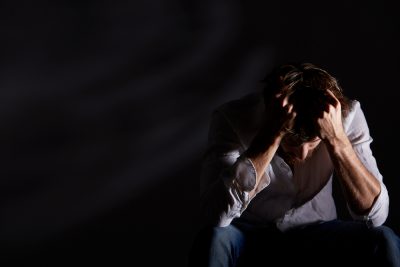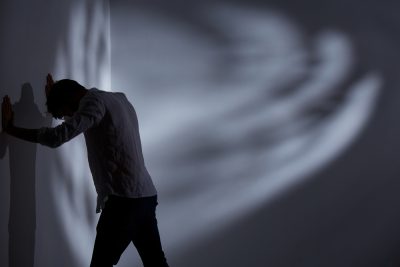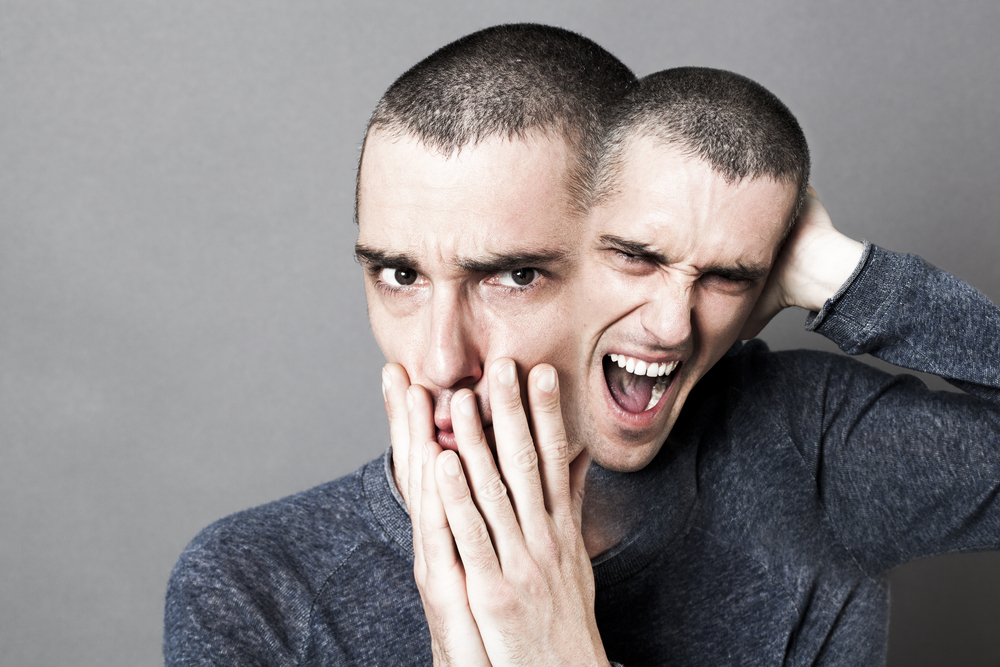Bipolar disorder also termed as “maniac-depressive disorder,” is a mental disorder that affects both genders. It is a mental condition characterized by a drastic change in moods, which is different from the regular mood shift you experience daily.
Unlike ordinary mood swings, bipolar disorder can be so extreme as to interfere with your work and school and disrupt your daily activities.
Bipolar disorder is a brain disorder that can reduce your energy level and dampen your overall mood. However, the symptoms and signs are distinctively different in men than in women, so it is considered a unique disorder.
Several studies have been able to ascertain that the quality of life in people who are bipolar can be significantly impaired if left untreated. Furthermore, this would also result in stigmatization, which can slow down the recovery process.
Still, stigmatization can be battled with showing a bipolar person more love and encouraging them to talk about their journey so far.
However, most men live with this disorder without even knowing, because they have a higher chance of being misdiagnosed, and sometimes they don’t know what symptoms to watch out for.
Hence, it’s vital to know the distinct symptoms of bipolar in men, but before that, let’s look at the signs of bipolar disorder peculiar to men.
Possible Signs of Bipolar Disorder in Men
Greater Aggression
When in the middle of an argument or fight, men who have bipolar disorder are at a greater risk of being more aggressive than those without. They are more prone to anger when in a depressed mood, and this can make the diagnosis of this disorder harder than it should be.
Many people fail to see the correlation between bipolar disorder and aggression, but there is a potential relationship between them.
Re-current Manic Episodes
Women with bipolar disorders are more likely to experience depressive moods than men. Bipolar in men is characterized by increased energy and the lack of need for sleep.
In severe cases, it can result in a man disconnecting from the actual world and the reality of life. These episodes have no specific duration; it can go on for a few days and sometimes stress to several months at a time.
Refusal to Seek for Help
 Due to the stigma associated with men who have bipolar disorder, it makes many men reluctant to seek treatment. They would rather insist on nothing being wrong, and this particular attitude is common to men who have mental disorders.
Due to the stigma associated with men who have bipolar disorder, it makes many men reluctant to seek treatment. They would rather insist on nothing being wrong, and this particular attitude is common to men who have mental disorders.
However, this is considered a major problem because research has shown that a higher percentage of men commit suicide than women, and most of these suicides could be avoided with adequate treatment.
Many men tend to shy away from seeking help because they are already viewed as “strong” by the public, but it is important to know that having bipolar disorder isn’t a measure of your resilience as a man.
Bipolar disorder is nothing to be ashamed of or any other mental disorder, and there are so many treatments out there for those who need it.
Symptoms of Bipolar Disorder in Men
Sadly, most men refuse to acknowledge that it is possible to have this disorder or those close to them. Denial is very common with bipolar disorder, and because it has to do with mental state, it makes it harder for men to accept.
Men are taught not to show emotions, so in their best interest, they rather deny than acknowledge that there is a problem. Symptoms of bipolar disorder vary in individuals; some are more prone to mania and others are prone to depression
People who have bipolar disorder go through the cycle of elevated and depressed moods at short intervals, which can make diagnosing a bit easier. However, it can sometimes be sneaky, as bipolar disorder may defy the usual manic-depressive order.
Gender plays a role in the identification of bipolar disorder in men, so it’s important to know the relationship between gender and bipolar disorder.
The symptoms of bipolar disorder are quite similar in both genders, but stereotypes can sometimes be why this disorder would be regarded as “normal” in men. For instance, a person with bipolar disorder can, for no reason, “feel great,” and this can lead to feeling overconfident.
This kind of symptom would be hard to distinguish in men because masculinity in most countries, especially America, typically means confidence.
Other symptoms include:
Manic Symptoms
Bipolar disorder is characterized by symptoms such as insomnia, reckless and impulsive actions, non-triggered excitement, and so on.
This cycle is more noticeable in men than in women, most especially the potential for being aggressive and the manifestation of reckless behaviors.
Bipolar disorder increases the risk of substance abuse in men, and that’s because they tend to self-medicate with alcohol or drugs.
Due to the stereotype of men not being allowed to show emotions, in order not to come off as weak, they tend to involve themselves in excessive drinking of alcohol to combat the feeling of being sad and hoping to regain the feeling of normality.
Depressive State
Bipolar disorder shows itself through six successions of behaviors, extreme sleeping, alteration in eating patterns, isolation, irritability, difficulty concentrating, and a reduced interest in anything previously enjoyed. And in some cases, extremity can result in suicidal attempts or behaviors.
Bipolar disorder comes with a high suicidal rate, and it is most significant in men. Early identification and diagnosis of bipolar disorder are vital to treat and control risk-associated behaviors adequately.
Extensive research has shown that men take extreme measures to avoid being labeled as depressed; that’s because the symptoms associated with depression defy the male standard of independence.
Types of Mood Episodes in Bipolar Disorder
Mania
This is the phase where you get to experience the euphoric feeling of excitement, energy, and creativity. The symptoms associated with the stage include sleeping less, being extremely hyperactive, and in some cases, you can even start interacting with yourself non-stop.
You may even get to feel invisible and very powerful, which can lead you to make drastic mistakes. While some people say mania often feels good, you should know that it can also spiral out of control.
You can tend to gamble away all your life savings when going through the mania phase, or even engaging in foolish sexual activities.
Sometimes, you can also become angry and aggressive – picking out fights with anyone close by. Additionally, you can become delusional and start imagining things.
Hypomania
This phase is less severe than the mania phase, during the hypomania phase, you get to feel slightly excited, but you can still carry out your daily activities.
Others may interpret it as you being in an unusually good mood, but it can also result in bad decisions that can ruin your career and relationship with people.
Bipolar Depression
 There is a significant difference between depression and bipolar depression, most especially with medications.
There is a significant difference between depression and bipolar depression, most especially with medications.
Anti-depressants have little or no effect on those with bipolar depression, and certain research has shown that such medications even make the disorder worse, by triggering mania or hypomania.
Bipolar depression involves unpredictable mood swings, irritability, and in some cases, you can lose touch with the real world.
The symptoms common with this phase include the inability to feel pleasure, loss of appetite, mental sluggishness, worthlessness, and loss of energy.
Mixed Episodes
This phase involves a combination of mania and hypomania symptoms. The common signs associated with this phase include depression, coupled with insomnia, anxiety, and whirling thoughts. This combination of varying moods makes it a high suicidal phase.
Treatment for Bipolar Disorder
Bipolar disorder is typically a long-term chronic condition, but it can be managed with the right approach. Long-term help involves sticking to the prescribed medications and creating a plan in case the symptoms start recurring even after a long while of feeling well.
It is perfectly normal for setbacks to occur, but with the proper treatment, you can return a level of normalcy to your life and still live well with bipolar disorder.
However, there is no identified cure for bipolar disorder; there are only medications that can help control the symptoms.
It is also important to maintain good relationships, proper mental health, and professional life when managing bipolar disorder. Bipolar disorder treatments for men include:
Stress Management
Stress management is a deciding consideration when treating men with bipolar disorder because it is a major stimulant for the disorder.
Learning to keep your stress levels to a minimum would better handle the symptoms of bipolar disorder. Striving to avoid situations and places that increase your stress levels would help you live comfortably.
Psychotherapy
Psychotherapy would help you better understand yourself and educate you on how you can have bipolar disorder and still go on with your daily activities.
Psychotherapy is very important, as it hastens the rate at which you can handle bipolar disorder and manage the symptoms, to live a healthy life.
Medications
Prescribed drugs and medications are necessary for treating bipolar disorder. Medications such as lithium would help you control the symptoms biologically with regard to any chemical imbalance.








COMMENTS